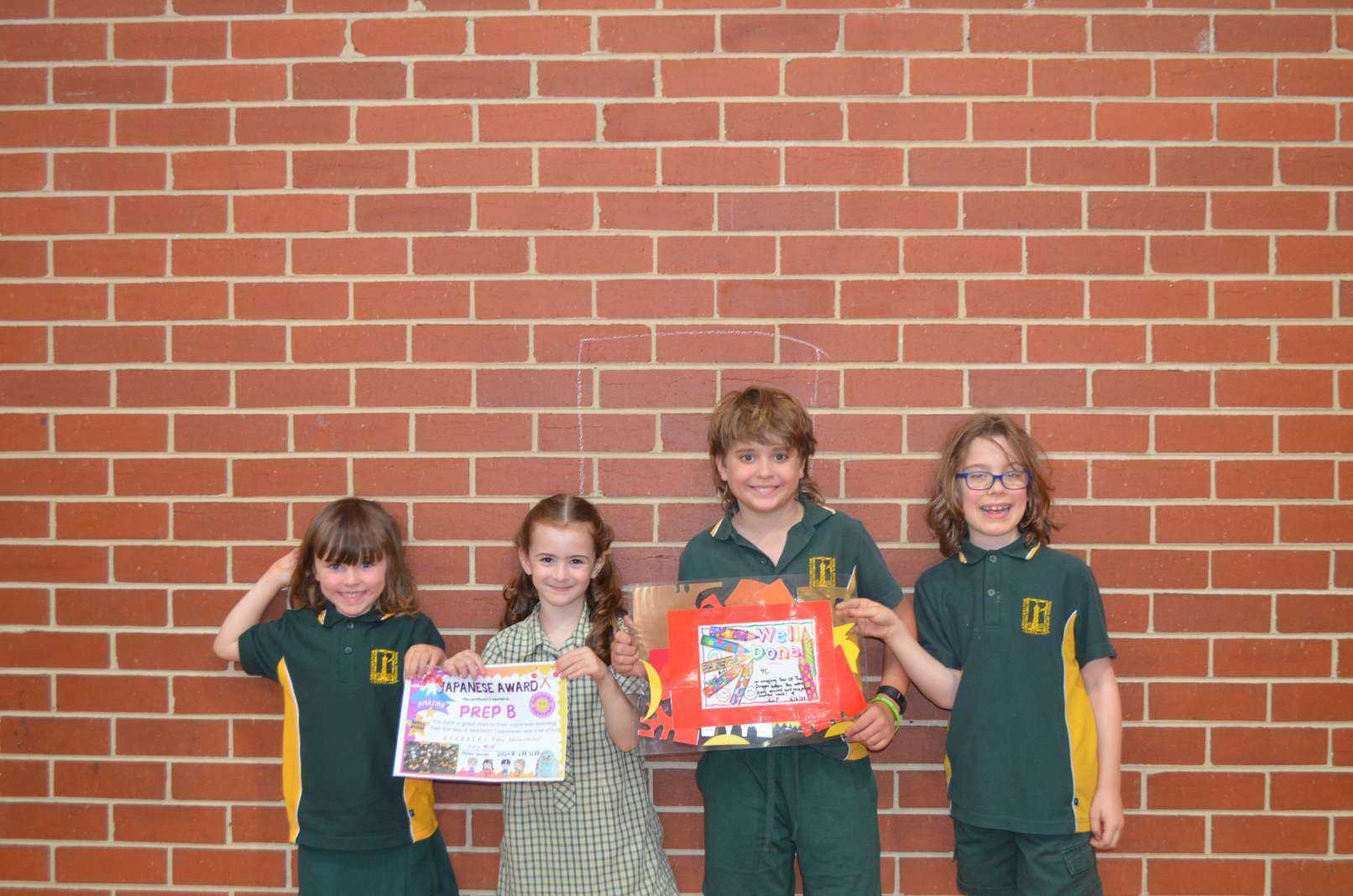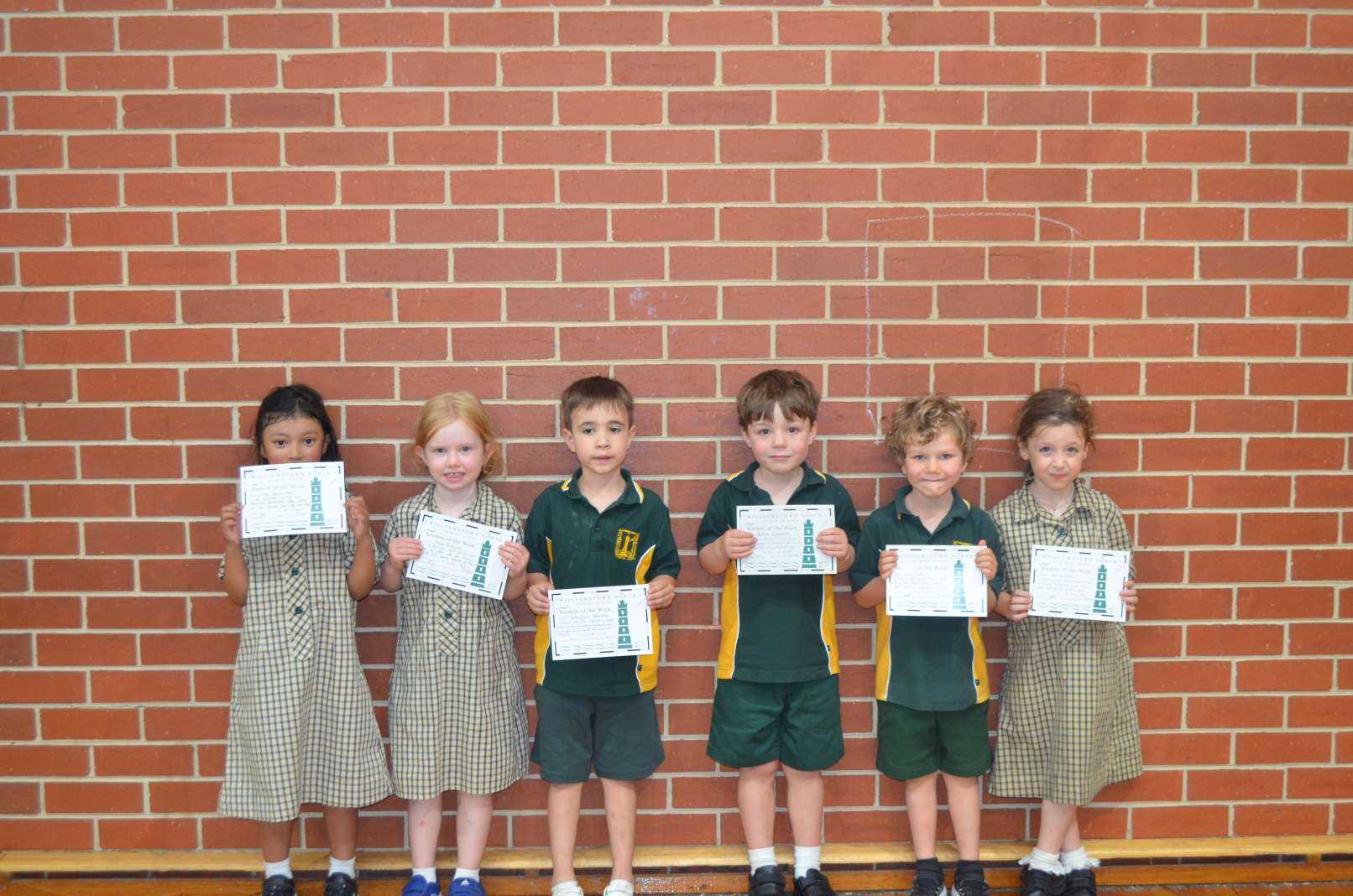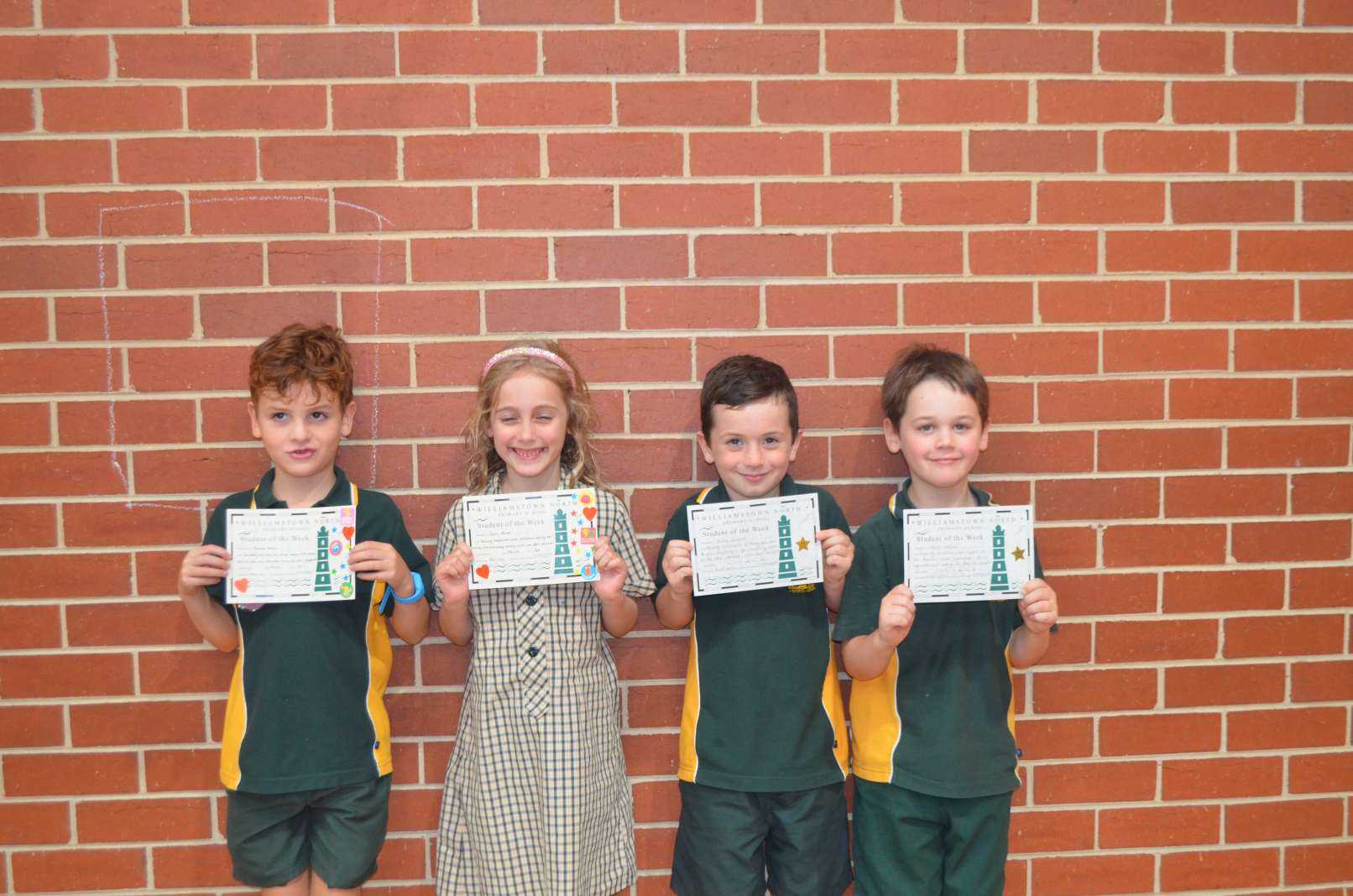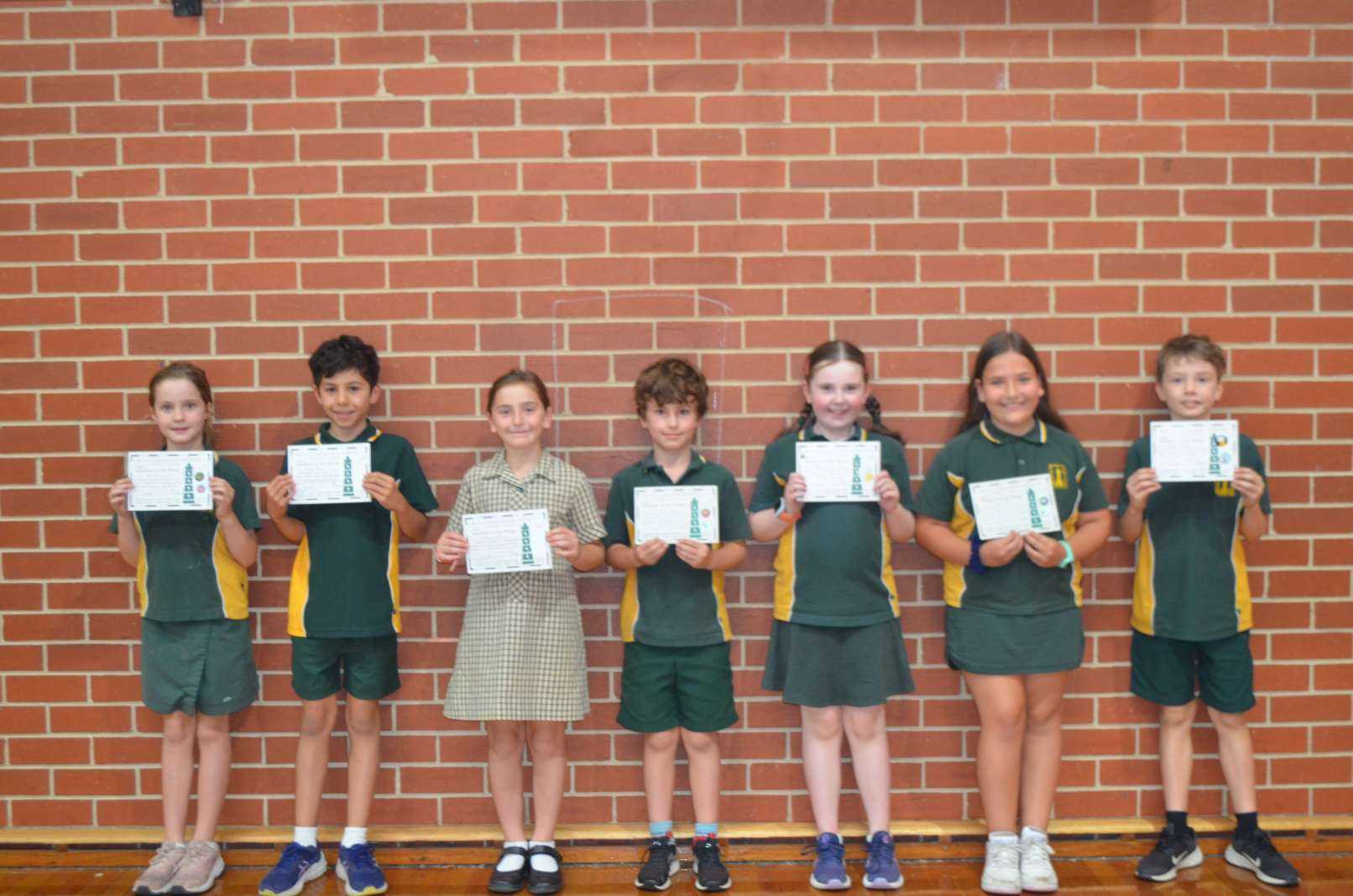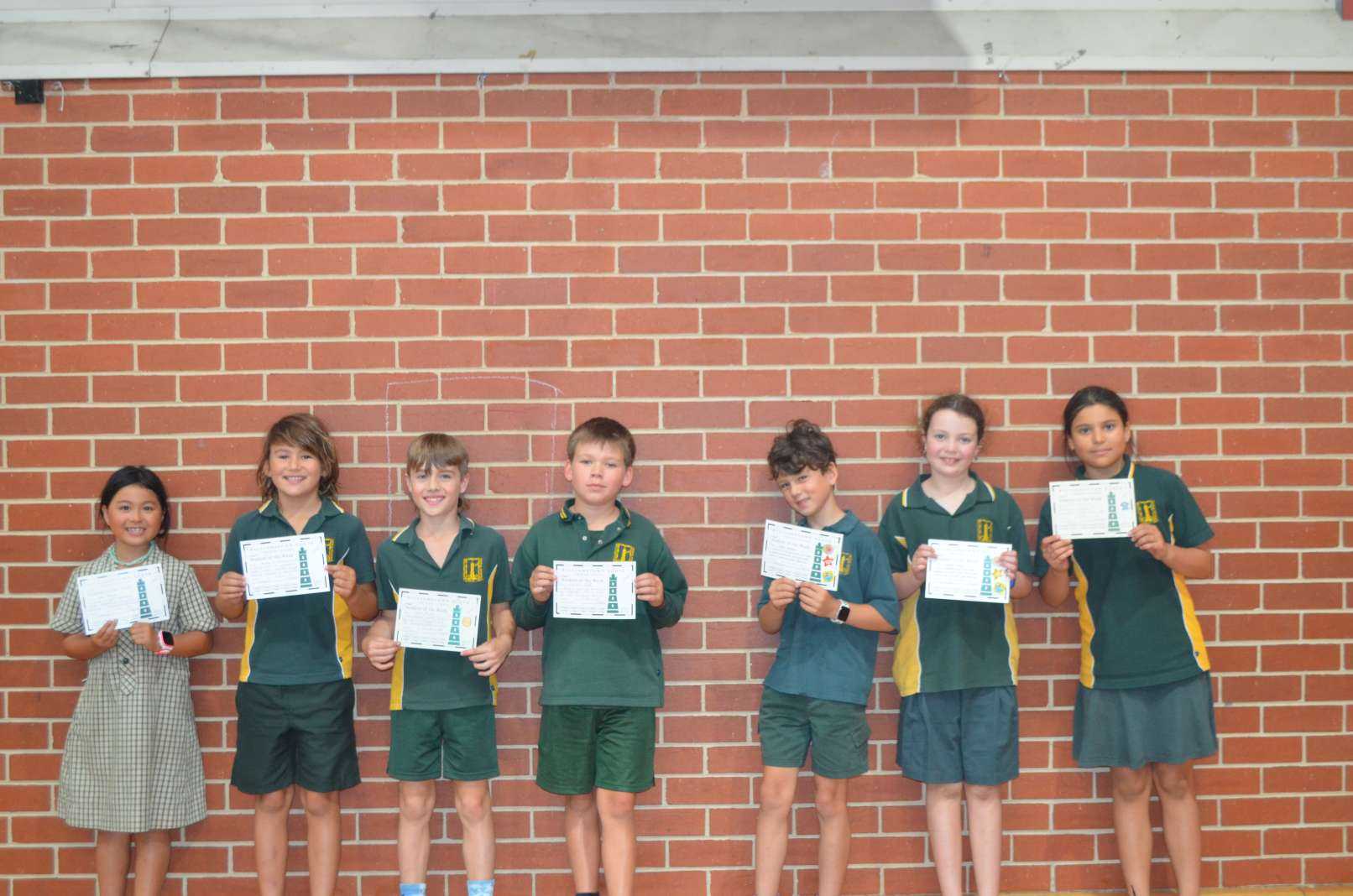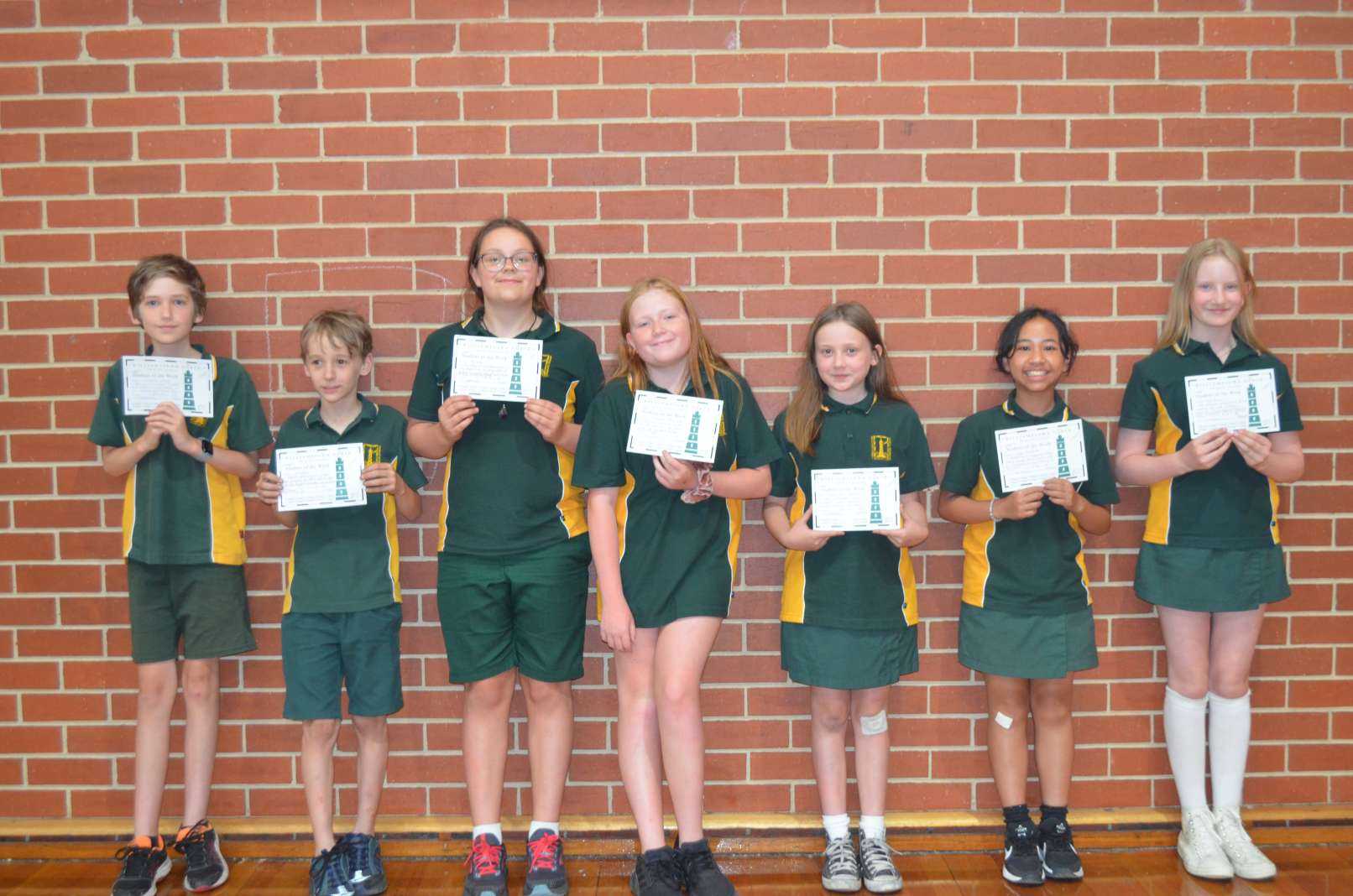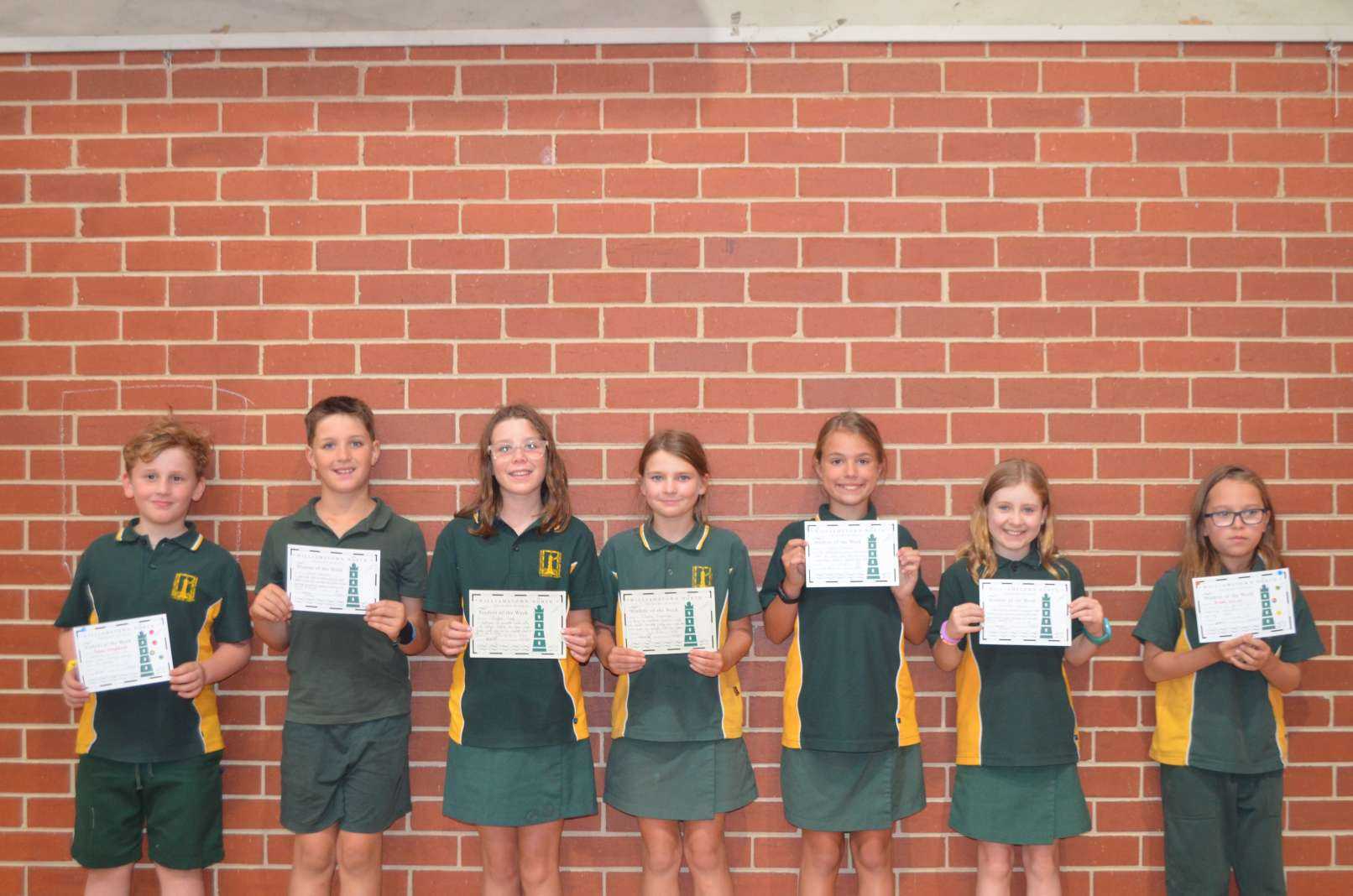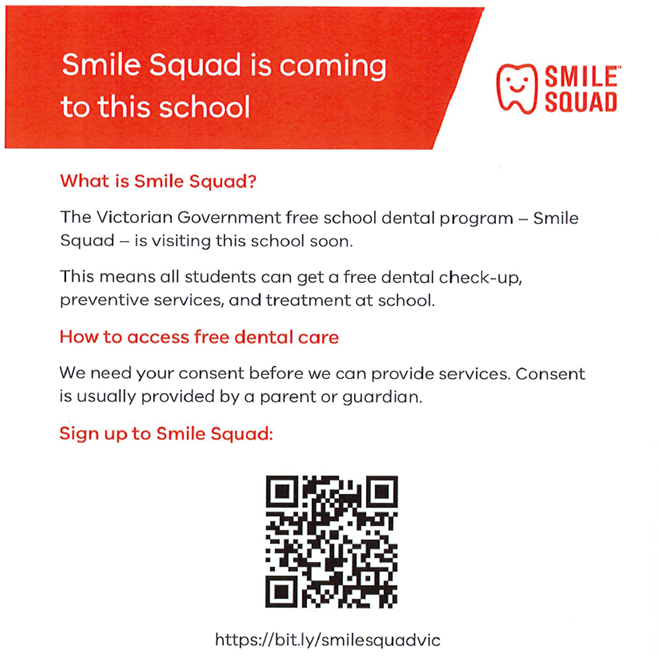Assistant Principal Report
Attendance
If your child is sick or absent, you are required to notify their school as soon as possible on the day of absence using one of the following methods:
Online: log the absence directly through Compass
Telephone: the school office and let the staff know your child’s name, class, date of absences and reason.
Email: the school and provide the staff with your child’s name, class, date of absences and reason.
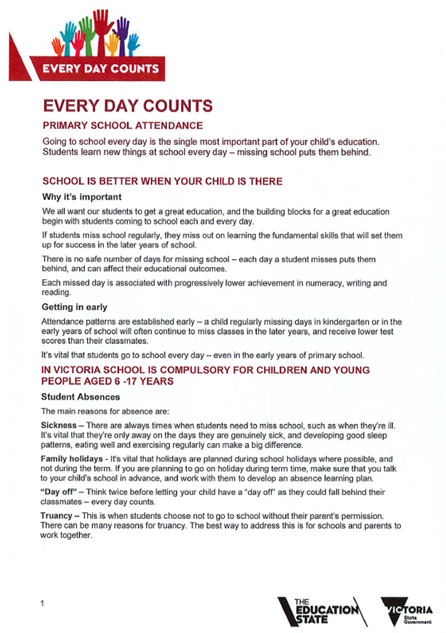
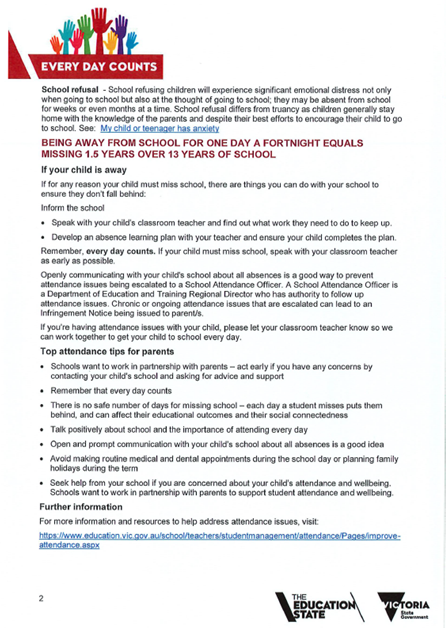
Notifying the school of your child’s absence either prior to, or on the day that they will be away, helps ensure the safety and wellbeing of children and will fulfil your legal responsibility.
NAPLAN
The National Assessment Program – Literacy and Numeracy (NAPLAN) is an annual assessment for students in Years 3, 5, 7 and 9. It is a nationwide measure through which parents/carers, teachers, schools, education authorities, governments and the broader community can determine whether or not young Australians are developing the literacy and numeracy skills that provide the critical foundation for other learning and for their productive and rewarding participation in the community.
This year the NAPLAN tests will occur in week 7 and 8 and following the schedule outlined below:
Wednesday 13th March – Writing
Thursday 14th March – Reading
Friday 15th March – Conventions of Language
Tuesday 19th March – Numeracy
Please see the attached infographic from ACARA outlining the benefits of National testing.
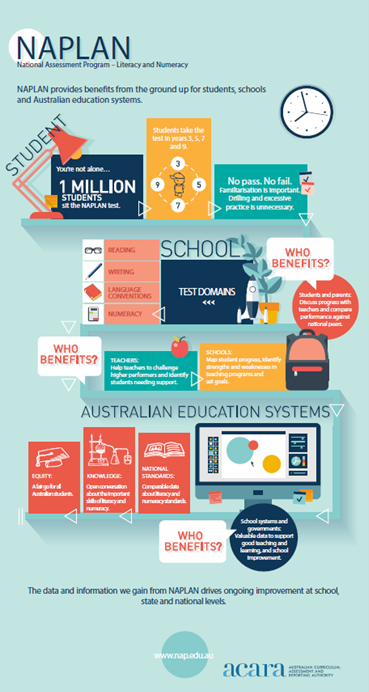
Parent Teacher Interviews:
On Monday 18th March you’re invited to book in a 10 minute meet and great with your child’s classroom teacher. Please ensure that you arrive promptly for your interview time, keeping in mind that this is a quick introductory meeting. If this day doesn’t suit or you require a longer time to discuss the learning and wellbeing outcomes for your child, please arrange to meet with your child’s classroom teacher another time.
Dates for the Diary
Labour Day Public Holiday: Monday 11th March
NAPLAN Testing for Year 3, and Year 5: Wednesday 13th March – Tuesday 19th March
Curriculum Day and Parent Teacher Interviews: Monday 18th March
Last Day of Term: Thursday 28th March
Introduction to the Education Support Staff
Cara Pepe
My role at WNPS includes Education Support in the classroom schoolwide, conducting Year 3 & 4 Social Thinking sessions with additional needs students and organising Student Support Group meetings on behalf of the Inclusion Learning Specialist, as well as administration. As a previous professional performer/dancer, I still maintain an active lifestyle teaching dance and working with people with disabilities. I recently completed my Certificate IV in Disability and have been a qualified personal trainer for over 10 years. I enjoy working with all students at WNPS.
Max Marioli
I am an ex WNPS student as well as a qualified youth worker. I volunteer with the Reach Foundation. I enjoy working in the school environment as an Education Support staff member. I am very friendly and approachable.
Sue Smith
My roles at WNPS: Library technician, Education Support, Scholastic Book Club organiser, Lamont Book Fair organiser, Canteen. (Employed here for over 30 years). I can be contacted: susan.smith3@education.vic.gov.au or in the Resource Centre. 1 am a passionate Richmond Supporter. Mother to 2 daughters and grandparent to twin grandsons and a granddaughter.
Tracy Carroll
I enjoy going along to camp with the students watching students at the camps we attend, its very rewarding encouraging students having ago at all activities. The school has some reptiles, 2 turtles named Myrtle and Franklin as well as the green tree frogs. I have some very responsible students to feed Myrtle and Franklin. I’m a bit of an allrounder helping in the classrooms, the Health Hub and the Office. Outside of work, lots of interests love a great coffee on a Saturday morning with friends.
Linda Taylor
My role at WNPS is an Education Support worker, across all year levels. I also support the Health Hub with First Aid. I have been employed at WNPS for 17 years and have worked in the Education System for 34 years. Being an ES, enables me to support all students learning & development in a one-on-one or small group. How can you contact me: - via school email- linda.taylor3@education.vic.gov.au I am a true RED supporter of Liverpool Football club (UK) where I was born. I emigrated to Australia in 2007 with my husband, Son and Daughter.
Alice Walter
My name is Alice, and I am one of the Education Support Staff. I am lucky enough to work in several classes across the school and support students with their learning. I also support students when they go on camp and excursions. If you can’t find me I might be helping in the Health Hub, Butterfly room or the front office. I am very good at finding lost hats too! When I am not at school, I am busy with my own three kids and a snoozy, fluffball dog named Lucky. I love to have a coffee out on the weekend. Being an Education Support Staff member is very rewarding. I love seeing my student’s confidence grow over the year. I love my work and I love Willy North PS!
Ruth Harrap
I am Ruth, my kids came to Williamstown North Primary School, they are now 19 and 17 years old, so I have been part of the community for many years. I love my job because it allows me to build trusting relationships with the students which assists them to thrive. I love working with students who struggle with big emotions and being their safe place, encouraging open communication and helping them find solutions. I love helping students who struggle to grasp reading and spelling, providing inclusive, fun working groups. Most of all I love hearing the kind words of appreciation from the students and all of the warm smiles I get every day.
150th Year Celebration @WNPS—Repeat
This year we celebrate 150 years of Williamtown North Primary School! And we need you!
We are currently putting together a plan to celebrate this milestone throughout the year, and we’d love to get your ideas, thoughts, connections, and stories. We will be celebrating our history, our present, and looking toward our future. Do you have a story about our history? Do you know someone from our past that should be included/involved? Any local celebrities that we could involve? Do you own a local business that would like to support the celebrations/be involved? Any great ideas to help our school commemorate this milestone? Would you like to volunteer in a small (or large!) way to help with the events, education, marketing, and commemorative program?
Please pop us an email to: wnps150th@willynthps.vic.edu.au – we’d love to hear from you.
Literacy News- Home Reading
Practice in reading aloud is very important for literacy development. Reading with a parent or carer is a great opportunity to do this and we’ve provided some information to support families.
The ‘Pause, Prompt, Praise’ method is research-based and effective. When your child is a beginning reader and has difficulty reading a word, the following has been shown to be the best way to help them:
1. PAUSE for around 3-5 seconds—this is important because children can often work it out if given the time. They read more slowly than we do and need time to think. If we jump in too quickly, not only do we make them reliant on us to help them, but we undermine their self-confidence.
2. PROMPT—if the child cannot read the word, we can offer them a phonics prompt.
a. The first prompt should be a phonic prompt: “Can you say the sounds to read the word?’
b. If they still can’t get it, sound the word for them with a slight pause between each sound (e.g., f...r...o…g). Encourage your child to say the sounds and then blend all the way through the word.
c. You could also identify the first sound and encourage them to sound out the rest or break the word into its syllables.
If they still have difficulty, tell them the word—and move on.
3. PRAISE is an important part of reading and you should give specific praise when your child has corrected an error or read the word correctly after a prompt. Praise should be specific, e.g. “You figured that out by yourself” or “You did a great job blending those sounds together to read the word. ”
For older students who might misread a word and continue, wait until they get to the end of the sentence before stopping them. Sometimes the reader will realise their mistake because it doesn’t make sense—and then self-correct—but they often need to get to the end of the sentence to realise this. We want readers to be able to read for meaning, and it’s an important skill for them to develop. If we immediately stop and correct them, we undermine the development of this process.
1. If they read on into the next sentence, you may then want to ask them: “Did that make sense?”
2. If they think it made sense, then ask them to read the sentence again. Sometimes they will read it correctly because they read more carefully the second time.
3. If they have misread a word for the second time, go back to the word and ask them to have a closer look at it. If they recognise their mistake, ask them to read the sentence again with the correct word.
4. If they cannot read the word, help them to break it up using the strategies above.
If they still have trouble, provide the word and move on—but make a note of the word and have a look at it later on. Talk about the meaning of the word, perhaps it’s a new word for them, there’s an unfamiliar part of the word, or they don’t know how to pronounce it.

Year One & Two News
What a wonderful start to the 2024 academic year we are having in One & Two. Students have had an absolutely wonderful start to this next step in their schooling, and teachers have been really impressed with students’ readiness to learn and keenness to tackle new learning tasks. Students’ enthusiasm for learning has been contagious!
We started the year with a big focus on Growth Mindsets, building a culture of mistakes and learning about fixed and growth mindsets. In addition to this, there were lots of ‘getting to know you’ games and activities aimed at building students' connectedness to school and their new classrooms.
We started our learning program with a focus on traditional tales and fables. This tied in spectacularly with our wellbeing units, as students learnt about Aesop and the life lessons and morals he was trying to teach his readers. Students wrote retells and innovations of these classic tales, which allowed for a focus on building writing stamina and writing conventions. There has also been time spent working on sentence-level writing skills and learning about literary devices such as personification. To further build on their learning, we have also organised for the Flying Bookworm Theatre Company to come along to our school to present an interactive theatrical performance of classic stories and fables. There will be more details in the coming weeks regarding this Incursion.
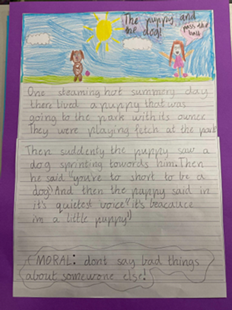
Counting and patterns have been our first focus in Numeracy, with students exploring number patterns into the thousands. Students have been describing these patterns using vocabulary like forwards, backwards, increase, decrease, larger, smaller, and skip. We have all been practising our skip counting patterns.
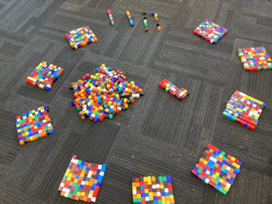
Students started their specialist classes and enjoyed reconnecting with their teachers and meeting their new Performing Arts teacher Chelsea, STEM teacher Miss Vicki and PE teachers, Nick and Matt.
Finally, the One & Two classes have travelled a much shorter distance to our new swimming program, at Bayfit. It has been wonderful to see how responsible students have been for their belongings and how keenly they participated in sessions. With swimming coming to an end this week, we are sure there will be some tired people by the weekend.
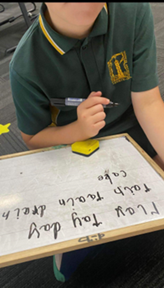
We want to congratulate our students and families on their sensational transition into One & Two! We’ve really enjoyed getting to know families and look forward to working closely with you throughout the year!
Student of the Week Awards
